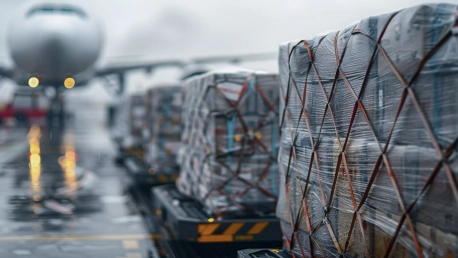AIR, originally known for its midsize electric vertical takeoff and landing (VTOL) aircraft for personal use, has ventured into the cargo and logistics market with its new unmanned AIR ONE Cargo eVTOL. Responding to substantial market demand, AIR developed this cargo variant and has already secured several purchase orders. After successfully delivering the first units, the company aims to fulfill the remaining orders throughout 2024 and the first half of 2025. This strategic expansion not only broadens AIR’s product offerings but also boosts their efforts toward large-scale, automated production using methodologies borrowed from the automotive industry.
Robust Design and Agile Capabilities
Key Features and Performance
Emphasizing AIR’s commitment to integrating eVTOL technology into various aspects of daily life, CEO Rani Plaut pointed to AIR ONE Cargo’s robust, agile, and cost-effective design. The aircraft’s ability to carry a 550-pound payload makes it an attractive option for the logistics sector. It compares favorably with manned variants in terms of speed and range, capable of performing short to moderate-range deliveries on a single charge. This versatility is particularly beneficial in applications where quick and reliable cargo transport is crucial, such as medical supplies, emergency relief, and just-in-time manufacturing logistics.The practicality of AIR ONE Cargo extends to its operational cost-effectiveness, making it a competitive option in an industry constantly seeking ways to improve efficiency. Unlike traditional delivery methods that involve significant manual intervention and logistical complexities, the automated nature of AIR’s eVTOL offers a streamlined solution. By reducing the need for ground-based infrastructure and human resources, companies can achieve a higher return on investment. The convergence of these factors helps position AIR ONE Cargo as a transformative player in the logistics market.
Implications for the Logistics Sector
The introduction of AIR ONE Cargo signifies a broader trend in the logistics industry towards automation and sustainability. Traditional delivery systems often involve a combination of road, rail, and air transport, each with its own set of environmental and economic challenges. By leveraging eVTOL technology, companies like AIR are able to provide a more sustainable and efficient alternative. This aligns with global efforts to reduce carbon footprints and transition to electric-powered solutions. The adoption of AIR ONE Cargo by logistics firms can serve as a model for future innovations in the industry, prompting other players to explore similar technologies.Another advantage of AIR ONE Cargo is its potential to address logistical bottlenecks in urban areas, where congestion and limited infrastructure can hamper delivery speeds. The vertical takeoff and landing capabilities allow these aircraft to bypass traditional traffic routes, delivering goods directly to designated points. This can significantly reduce delivery times and enhance the reliability of supply chains. As eVTOL technology continues to mature, its integration into everyday logistics operations is likely to become more seamless, further cementing AIR’s role as a leader in this space.
Strategic Alliances and Future Developments
Collaboration with the U.S. Air Force
Further solidifying its market presence, AIR has participated in the U.S. Air Force’s AFWERX Agility Prime program, an initiative aimed at accelerating the commercial use of air mobility technologies through rigorous R&D and flight testing. This participation not only enhances AIR’s technical capabilities but also opens up new avenues for market validation and potential military applications. The collaboration offers a platform to fine-tune performance metrics and ensure regulatory compliance, which are critical steps towards achieving full certification for both personal and cargo variants of AIR ONE.The integration of AIR ONE Cargo into the AFWERX Agility Prime program also underscores the growing interest in unmanned aerial vehicles (UAVs) for a variety of applications beyond civilian logistics. Military use cases, such as troop resupply and equipment transport, can benefit from agile, unmanned systems that can operate in challenging environments with minimal human intervention. By participating in such programs, AIR not only gains valuable insights but also fortifies its credibility as a manufacturer capable of meeting stringent operational requirements.
Future Growth and Market Impact
AIR, initially famed for its midsize electric vertical takeoff and landing (VTOL) aircraft designed for personal use, has now branched into the cargo and logistics sector with the debut of its unmanned AIR ONE Cargo eVTOL. Recognizing substantial market demand, AIR proactively developed this cargo version and has already garnered multiple purchase orders. Having successfully delivered the initial units, AIR aims to complete the remaining orders throughout 2024 and the first half of 2025. This move not only diversifies AIR’s product lineup but also significantly enhances their drive toward high-volume, automated production. Borrowing advanced manufacturing techniques from the automotive industry, AIR is poised to revolutionize cargo logistics. This strategic shift allows AIR to tap into new revenue streams and further solidifies its position in the eVTOL market, highlighting its innovation and adaptability. As the company expands its portfolio, it sets a new standard for automated production and next-gen logistics solutions.









